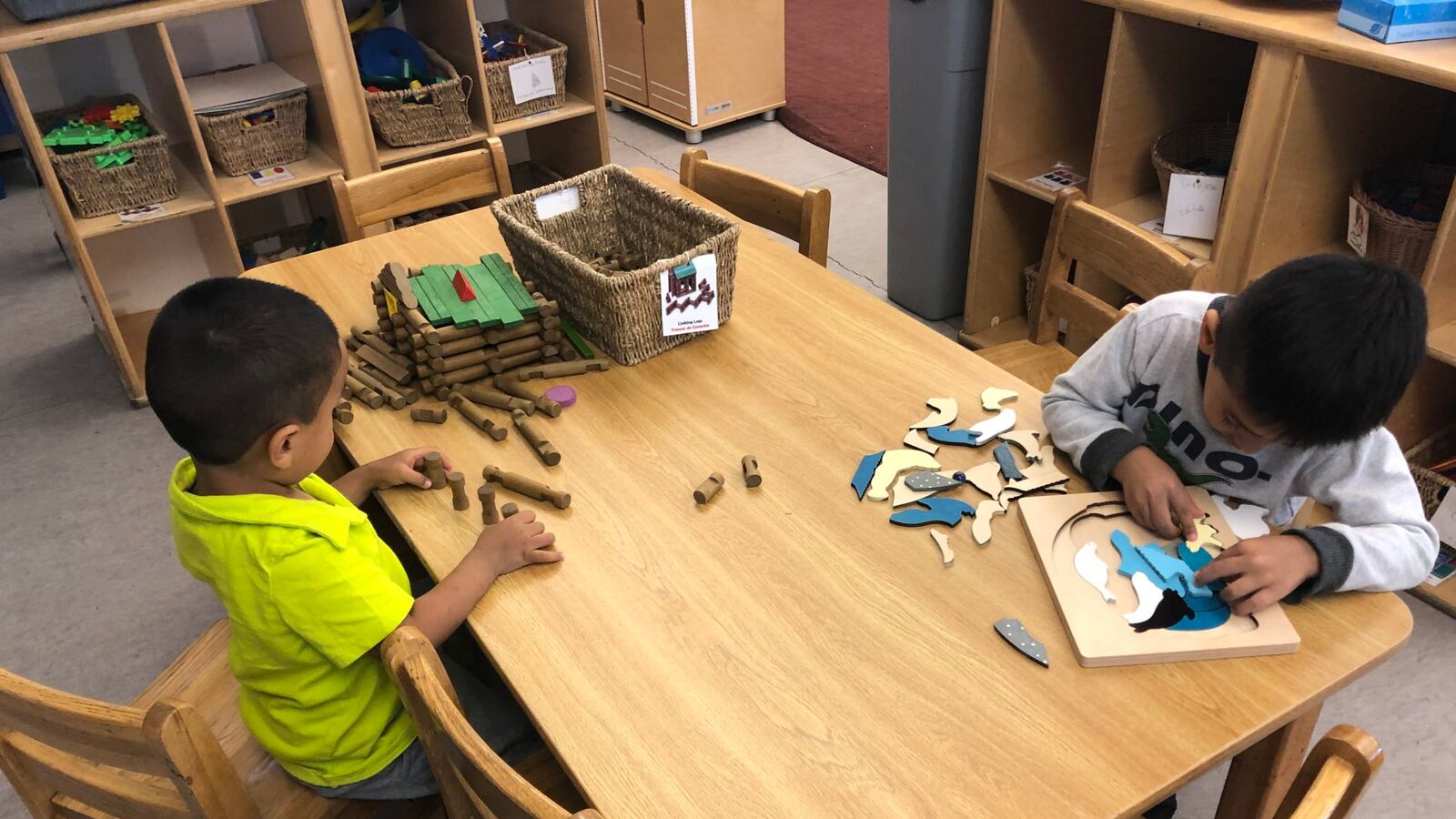Last fall, two Chicago aldermen called for hearings into how the city parceled out a $200 million grant to early learning providers that could total as much as $1 billion across the next five years.
Those hearings didn’t happen.
Now, calling the way the city has scrambled child care funding a “disaster” that has destabilized education and care for Chicago‘s youngest residents, three state legislators have proposed a forceful resolution that could prod the City Council to hold hearings. The resolution, however, is non-binding.
The lawmakers want to examine how the city last year redistributed the bulk of its early learning money intended for low-income families and their children. Some longtime agencies lost funding and seats for children 5 and under; other centers with less of a track record picked up funding and seats.
The lawmakers joined early childhood advocates and providers who want to know how Chicago scored grant applications from early learning providers — and why some highly rated agencies lost funding.
The resultant losses could close classrooms and reduce options for families, the resolution says. The administration of Chicago Mayor Lori Lightfoot has twice extended a portion of current-year funding to help carry organizations through June, but it’s not clear what will happen after that.
“If this disaster is not immediately rectified, the entire early childhood ecosystem will be destabilized and dismantled throughout the City of Chicago,” reads the resolution filed by Rep. Andre Thapedi, whose district includes parts of the South Side and nearby suburbs, and co-sponsored by State Rep. Theresa Mah, whose district includes Chinatown, Pilsen, and nearby city neighborhoods, and State Rep. Kelly Cassidy, who represents parts of the North Side.
The closure of three Southwest Side centers last fall run by Catholic Charities was a “devastating occurrence,” said Mah, who is still hearing from families in her district who are struggling to find child care as a result. She said the experience prompted her to also introduce a bill that would require providers to give families 90 days notice before they close centers.
When the centers closed abruptly in November, “these families were left without child care and after-school programming right before the holidays,” she said, “so not only did they not have enough time to explore other options and get kids enrolled, their only other nearby options were a lot of programs that don’t have space or aren’t accessible — they can’t get there.”
Many families in her district are undocumented and don’t have transportation, so openings in far-flung neighborhoods didn’t address the problem, she added. Some families are still searching.
The resolution calls on the City Council Committee on Health and Human Relations, chaired by Ald. Roderick Sawyer, who represents Englewood and Greater Grand Crossing, to “expeditiously convene a public hearing” and use it to solicit public testimony from Lisa Morrison-Butler, the commissioner of the Department of Family and Support Services. That is the city department that steered the grant competition and, according to the resolution, assigned graduate student volunteers to score the proposals.
Sawyer’s office did not respond to a request for comment. Neither did a spokeswoman for the city’s family services department.
Most of the state and federal money earmarked for early learning programs and particularly for the low-income children attending them flows through the city of Chicago, an increasingly unusual arrangement among large cities. The city determines which non-profits and for-profit providers get the money.
The grant distribution coincided with sweeping changes in the city’s early learning system. Chicago Public Schools is expanding free preschool for 4-year-olds and some providers report losing children and staff as a result.
The city has retained a law firm, Baker McKenzie, to conduct an independent evaluation.
Nashone Greer-Adams runs Little Angels, a small, for-profit center in Englewood that lost funding — despite the fact that she won an earlier grant for a new preschool building under the city’s previous mayor, Rahm Emanuel.
She said she was relieved to hear that legislators are supporting a resolution. Her funding runs out in June. She said she has traveled from City Hall to Springfield and back again trying to get politicians to understand her center’s plight.
“I’ve been told it’s a city issue, it’s not a state issue, and then (city representatives) will tell me the situation will get addressed and nothing happens,” she said. “You hear someone promise one thing, and then the politicians do another. We need some answers and some transparency.”

